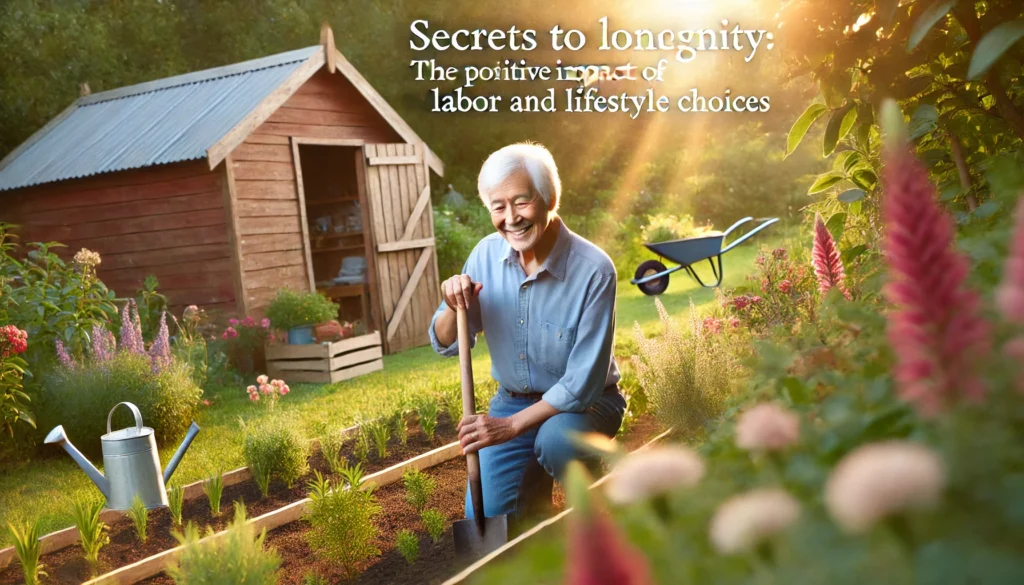Labor: The secrets to living a long, healthy life, as discovered through various studies and interviews with centenarians, emphasize the importance of lifestyle choices over genetics. Here are the key findings:
- Healthy Diet: Centenarians often follow diets rich in fruits, vegetables, whole grains, and lean proteins while avoiding processed foods and sugars. The Mediterranean diet, which includes olive oil, fish, and vegetables, is particularly common among the longest-living populations (FitOn) (Guideposts).
- Physical Activity: Regular exercise is crucial. Activities like walking, gardening, and dancing not only keep the body fit but also enhance mental well-being. Many centenarians integrate physical activity into their daily routines (FitOn) (Organic Authority).
- Strong Social Connections: Maintaining robust social ties with family and friends is essential. These relationships provide emotional support, reduce stress, and contribute to a sense of purpose and belonging (FitOn) (Guideposts).
- Stress Management: Centenarians often practice mindfulness and maintain a positive outlook on life. Techniques such as meditation, deep breathing, and spending time outdoors help reduce stress and improve mental clarity (FitOn) (Organic Authority).
- Purposeful Living: Having a sense of purpose, often referred to as “ikigai” in Japanese culture, is a common trait among centenarians. This purpose could come from work, hobbies, or social roles, and it helps keep them mentally and physically active (Organic Authority).
- Moderation in Eating: Practices like eating until 80% full and consuming small portions, particularly in the evening, are habits found among many centenarians. These practices help in maintaining a healthy weight and preventing chronic diseases (FitOn) (MDLinx).
- Resilience and Adaptability: Many centenarians display a remarkable ability to adapt to life’s changes and stressors. This adaptability, coupled with a generally easy-going nature, contributes significantly to their longevity (American Association of Universities) (Organic Authority).
- Positive Contribution through Work: Engaging in meaningful work or activities plays a significant role in longevity. Work provides a sense of purpose, keeps the mind and body active, and fosters social connections. It also helps maintain cellular health through processes such as apoptosis, where the body naturally removes dysfunctional cells. Herbal remedies like peony can help regulate apoptosis, further contributing to health (American Association of Universities) (MDLinx).

While genetics do play a role, these lifestyle factors are predominantly influential in achieving a long and healthy life. Adopting these habits can not only extend life expectancy but also enhance the quality of life as one ages.
References
- FitOn. (n.d.). The 7 Longevity Secrets of Centenarians For Living Better. Retrieved from FitOn
- Guideposts. (n.d.). 10 Centenarians Share Their Secrets to Long Life. Retrieved from Guideposts
- Association of American Universities (AAU). (2024). The Secrets of Living to 100. Retrieved from AAU
- MDLinx. (2023). Secrets of centenarians: 4 factors that influence who makes it to 100. Retrieved from MDLinx
- Organic Authority. (2014). 5 Habits of Centenarians and How to Live Longer. Retrieved from Organic Authority
For the original Korean text, visit here.
If you’re curious about the basics of traditional Korean medicine and health, read the following article:
Learn Why Studying JangSang Medicine is Important.
Frequently Asked but Silly Questions (Foods Good for the Liver??)
Thank you for reading.


